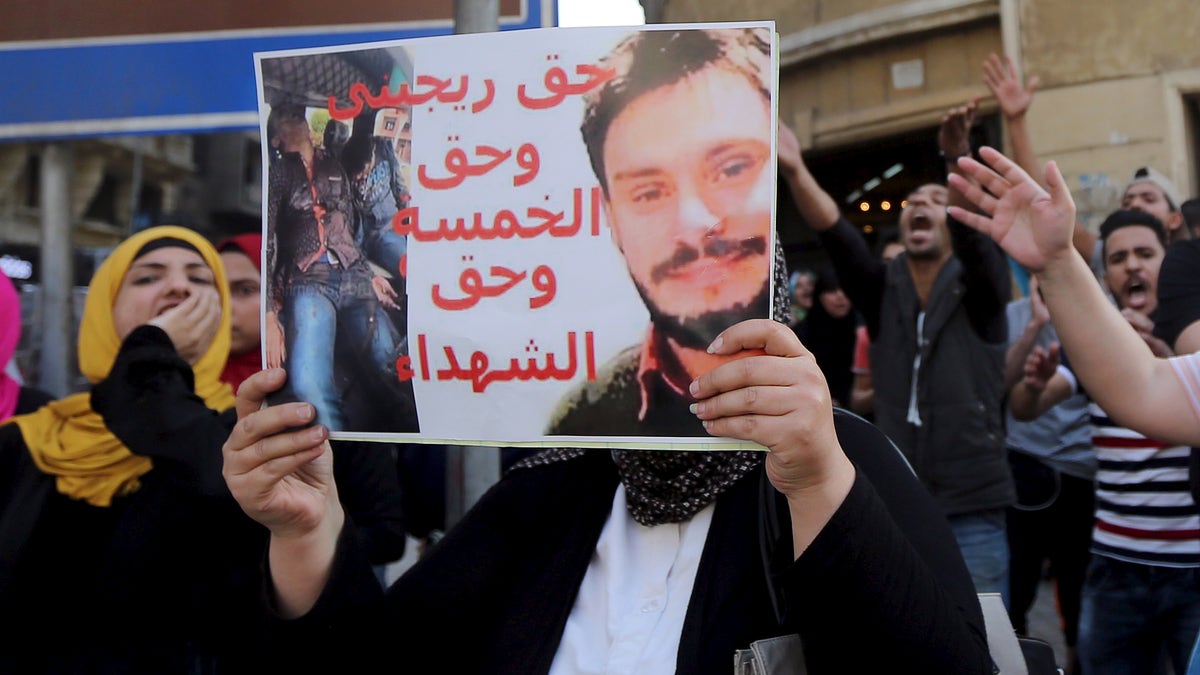
April 15, 2016: An Egyptian activist holds a poster calling for justice to be done in the case of the recently murdered Italian student Giulio Regeni during a demonstration protesting the government's decision to transfer two Red Sea islands to Saudi Arabia, in front of the Press Syndicate in Cairo, Egypt. (Reuters)
Egyptian authorities filed a police report against Reuters after the news agency reported last week that police detained an Italian student the night he disappeared.
The police report, which was filed on Friday, accuses Reuters of publishing “false news aimed at disturbing public order” and “spreading rumors to harm Egypt’s reputation.”
The Reuters story cites anonymous police sources as saying that Egyptian officers arrested young doctoral student Giulio Regeni before transferring him to a security compound. The student’s body was found on a desert road in Cairo on February 4, bearing signs of torture.
In response to the backlash, Reuters released a statement defending its reporting.
“We stand by the story published on 21 April, 2016 regarding the detention of an Italian student, Giulio Regeni. The story did not state who is responsible for his death, and is consistent with Reuters’ commitment to accurate and independent journalism,” David Crundwell, a Reuters senior vice-president said in a statement.
The country’s actions against Reuters are the latest in a series of Egyptian crackdowns on journalism and free speech.
Egypt recently tried and retried three Al-Jazeera journalists who were also accused of publishing “false news.” Two defendants, Baher Mohammed and Mohammed Fahmy, were eventually pardoned, and a third, Peter Greste, was deported.
“These reports and threats are disturbing and come against a backdrop of increasing intolerance of independent journalism. The Egyptian authorities should repeal broad laws that make criminal prosecutions for spreading so-called false news possible,” Sherif Mansour, of the Committee to Protect Journalists, told the Guardian.
According to the committee’s most recent survey, Egypt is the world’s second largest jailer of journalists, with 23 currently behind bars.
